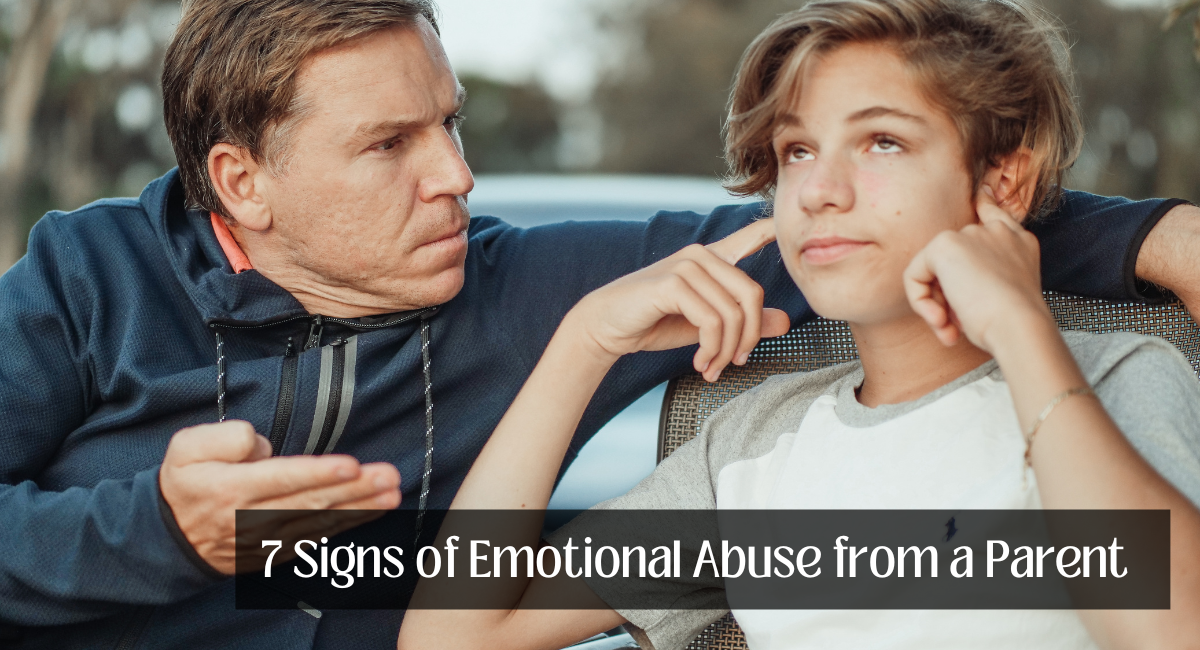Emotional abuse is a deeply troubling experience that can leave lasting scars on an individual’s psyche. When this abuse comes from a parent, it becomes even more complex and challenging to navigate due to the inherent trust and dependency children have on their caregivers. Recognizing signs of emotional abuse is crucial for both the victims and those around them. This article delves into seven signs that may indicate emotional abuse from a parent.
1. Constant Criticism
One of the hallmark signs of emotional abuse is relentless criticism. While constructive feedback is essential for growth, constant belittling, name-calling, or demeaning comments can erode a child’s self-worth. A parent’s role should involve nurturing and building confidence, not consistently tearing it down.
2. Manipulative Behavior
Emotionally abusive parents often employ manipulative tactics to control their children’s actions, feelings, or perceptions. This manipulation can manifest in various ways, such as guilt-tripping, gaslighting, or using emotional blackmail. Over time, children may doubt their reality or feel perpetually indebted to their parents.
3. Isolation from Others
An emotionally abusive parent might deliberately isolate their child from friends, family, or other supportive figures. This isolation can be physical, such as restricting social interactions, or emotional, where the child feels unable to share their experiences with others due to fear or shame instilled by the parent.
4. Unpredictable Responses
Consistency and predictability are crucial for a child’s emotional well-being. However, emotionally abusive parents often exhibit unpredictable mood swings or responses. A child may walk on eggshells, never knowing what might trigger an outburst or when they might receive affection. This unpredictability can lead to anxiety and a heightened sense of insecurity.
5. Emotional Neglect
While physical neglect is more overtly recognized, emotional neglect can be equally damaging. Ignoring a child’s emotional needs, dismissing their feelings, or showing a lack of empathy can result in feelings of abandonment or unworthiness. Over time, children may suppress their emotions, believing they are unworthy of love or understanding.
6. Overly Harsh Discipline
Discipline is an essential aspect of parenting, but when it becomes excessive, punitive, or disproportionate to the child’s actions, it crosses into emotional abuse territory. This harsh discipline can include corporal punishment, shaming, or withholding affection as a form of punishment. Instead of teaching constructive behaviors, it instills fear and resentment.
7. Invalidation of Feelings
Every individual, including children, deserves validation for their feelings and experiences. Emotional abuse often involves invalidating a child’s emotions, dismissing their concerns, or minimizing their experiences. Phrases like “You’re too sensitive,” “It’s not a big deal,” or “Stop overreacting” can invalidate a child’s feelings, making them question their emotions and perceptions.
Conclusion
Recognizing signs of emotional abuse from a parent is crucial for intervention and support. If you or someone you know identifies with these signs, seeking professional guidance from therapists, counselors, or trusted individuals can provide clarity and assistance. Everyone deserves love, respect, and emotional safety, regardless of age or relationship with their parents.






